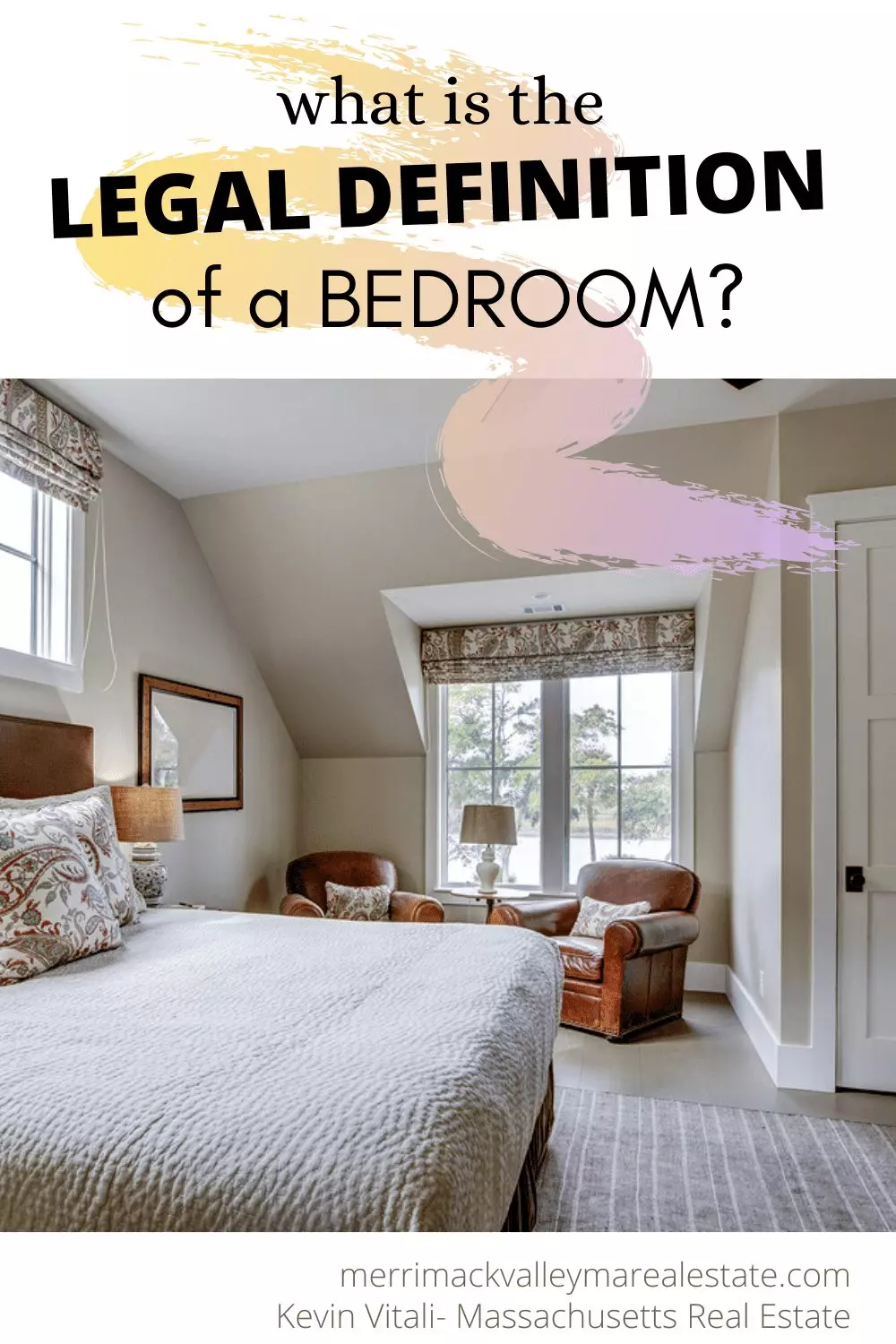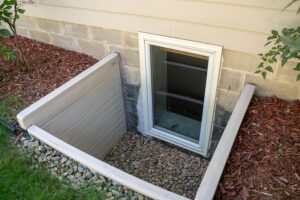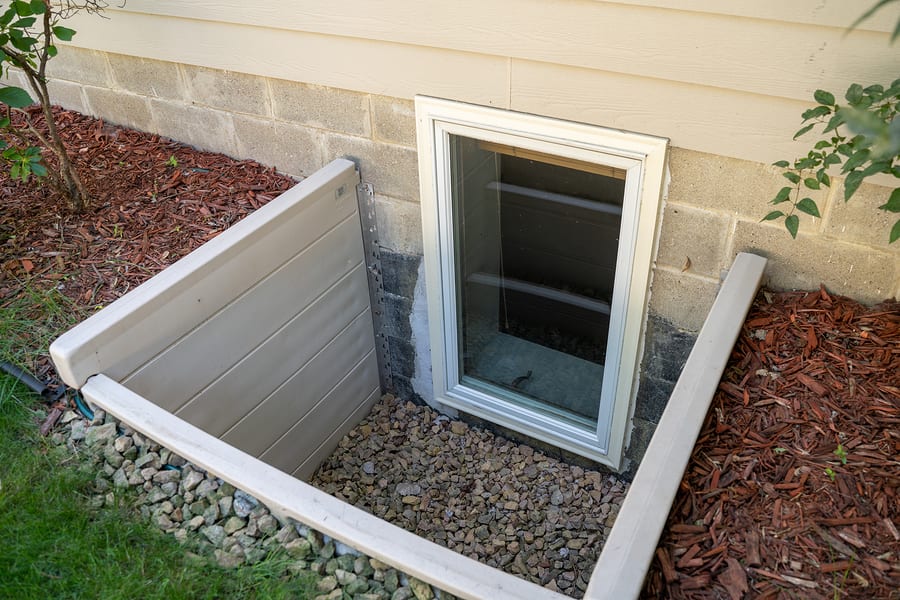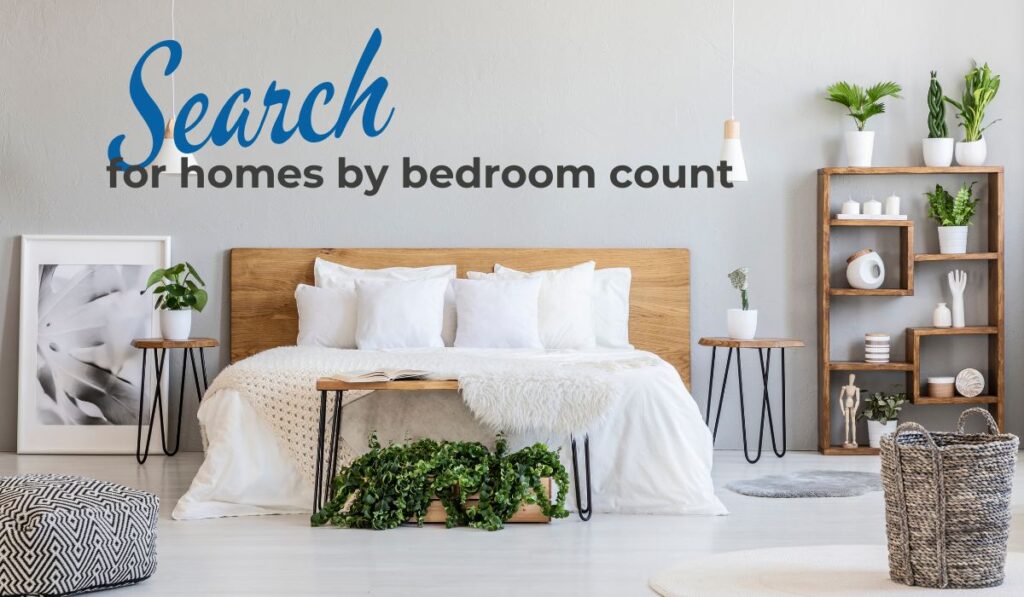

A bedroom is not always a bedroom when it comes to the “legal requirements” for a bedroom.
Most information that defines a bedroom as a bedroom leads back to the International Residential Code or IRC incorporated in most states’ building codes.
Sellers want more bedrooms and label everything they can as a bedroom, thinking it will add more money to the price of the home. Buyers are more concerned about a bedroom’s functionality and safety.
Let’s look in-depth at what makes a bedroom a “legal” one according to t the IRC and town building departments.
And of course we are going to address the big question from home buyers…. does the bedroom have to have a closet?
Jump To A Section....
The Dollar Value of a Bedroom
A legitimate bedroom is worth money…. it could be the difference of tens of thousands of dollars. A two-bedroom home or a three-bedroom home vs. a four-bedroom home could have a significant increase in your home’s value.
It is hard to put a flat value on a bedroom. You must take into account the community the home is in and the price point of the home to determine the value of additional bedrooms.
The expectation of what that home should have compared to similar homes is also key in determining the value of a bedroom.
What Is The Legal Definition of A Bedroom?
The legal requirement of a bedroom is first controlled by state building codes. Individual towns can also enforce more stringent requirements above and beyond what the state requires.
First is a quick bullet point of what legally defines a bedroom and then go into greater length. The minimum requirements for a bedroom will be broken down into several things.
- Two means of egress.
- One egress to the outside of the home. Either a door or a window that meets specific requirements will do.
- A window for light and ventilation. The square footage of the room determines the size of the windows.
- The minimum size of 70 square feet.
- No horizontal dimension less than 7 feet.
- Minimum height of 7 feet for at least half of the ceiling.
- A bedroom must always be heated to 68 degrees from a permanent heat source.
- Minimum of 2 electrical outlets or an outlet and a light fixture.
- Private access. The room cannot be a throughway to another room.
And, believe it or not, a closet is not required for a room to meet the legal requirement of a bedroom!!
Two Means of Egress
For safety’s sake, especially during a fire, building code requirements for a bedroom require two forms of egress for a bedroom.
Typically, that egress is an interior door and a window to the outside. The requirement allows for at least one exit outside the home. This could also include an interior door and an exterior door as well.
This allows a bedroom’s occupant to escape the bedroom from two routes during an emergency. But it also provides emergency personnel access from the outside.
Exterior Egress


As pointed out above, to legally define a bedroom you need one egress directly to the outside of the home. Usually, that egress is in the form of a window.
The window sill cannot be more than 44″ above the bedroom floor, allowing access for someone to exit from the window.
There will also be a requirement that the window has an opening of not less than 24″ and be a minimum of 20″ wide.
Again building codes are concerned with safety. A home’s occupants are most vulnerable when they are sleeping. They want an occupant of a bedroom to access the exterior of a home directly but also allow emergency personnel to gain access to equipment.
Second Door
In some states, the second egress may not necessarily be a window but can be an exterior door. The door must directly access the outside; sometimes, they may allow for a bulkhead.
Often, a seller will want to count a basement bedroom in a bedroom count. But if it does not meet the egress requirements for a bedroom, it should not be counted as a “legal bedroom”.
Minimum Square Footage Requirements For A Bedroom
There are no standard dimensions required for a bedroom. But their minimum size and horizontal dimension requirements for a bedroom. The minimum square footage is typically 70-80 square feet. Many building codes take it one step further.
No horizontal dimension can be less than 7 feet. So a seven by 10 room could meet the potential legal definition of a bedroom. But a six by 12 room would not.
Even though it has more square footage, it does not meet the 7-foot horizontal dimensional requirement for a bedroom.
Minimum Ceiling Height
Minimum ceiling height will also vary from community to community. Typically, the legal definition of a bedroom will require a minimum ceiling height.
That requirement will usually be a minimum ceiling height of 7 feet for over half the ceiling of a room.
For a small post-war cape codder that has a pitched ceiling, that could mean if there is no dormer, a bedroom might not meet the legal definition of a bedroom.
Heated Space
It will also be required that a bedroom can be heated. A space heater will not be appropriate. The bedroom must be part of the home’s HVAC system or, at the very least, be heated by an electric baseboard or some other permanent stand-alone heating system.
The heating system for your bedroom must maintain a temperature of at least 68 degrees during the year.


Septic Requirements to Meet The Legal Requirements of A Bedroom
When a septic system is installed, it is rated by the number of bedrooms it can serve.
You cannot add a fourth bedroom to a three-bedroom septic system.
Make sure your septic system is rated for the number of bedrooms you have before renovating, including adding a bedroom.
Access
A bedroom must have private access and be accessed by a hallway or other communal space in the home.
If your “bedroom” is a throughway to another room, it cannot be considered a bedroom.
Lighting and Ventilation
A bedroom will need at least one window for lighting and ventilation.
Most building codes require a room’s window glazing area to be 8% of the square footage of the floor space.
For example, a 144-square-foot room must have a minimum of 11.5 square feet of windows.
Electrical
A bedroom must have a minimum of one light fixture and an electrical outlet or two electrical outlets.
Smoke Detectors And Carbon Monoxide Detectors
Massachusetts Smoke and Carbon Detector Laws require that bedrooms either have their own smoke detectors and carbon monoxide detectors or are near each device.
The age of the home dictates whether they are battery operated or hard-wired as well as the placement.
A seller can only transfer property in Massachusetts with a smoke certificate.
Don’t Forget The Permit On Any Additions
Pull a building permit if you add to your home in any capacity, including a bedroom.
The permit ensures the addition is built to minimum safety standards, including a safe exit from any bedrooms.
You need to pull the permit to avoid creating many headaches yourself.
Pulling A Permit Helps You Meet The Legal Requirements for a Bedroom
I have had some towns pull a home’s occupancy permit when they see a room being used as a bedroom that does not meet the safety requirements of a bedroom for that town. Talk about a hassle in the midst of selling a house!
I always say pull the building permit. You will spend a few hundred dollars more on your project upfront but could save thousands or more later. And make sure you get the final inspection and close your building permit to prevent an open permit from causing problems later on.
A Town’s Legal Requirements For A Bedroom
Each town can also impose certain restrictions on what can be a bedroom that goes above and beyond the International Residential Code.
Before endeavoring on a major project, ensure you understand the legal requirements for a bedroom from the town. Contact your local building department to see what they want to call a room a bedroom.
Does A Bedroom Have to Have A Closet
No. Believe it or not a closet is optional to qualify as a bedroom according to the IRC. Nowhere in the IRC is a closet even mentioned.
In New England, many older homes do not have a closet in some or all of the bedrooms. Armoires were a popular alternative to traditional closets in a bedroom throughout the 20th century.
Some towns may require a bedroom to have a closet, so work closely with your town’s building department when doing any renovations or additions.
The Role Of A Closet In A Bedroom
For buyers, is a key feature in a bedroom. It serves as an essential for clothing and personal belongings and additional storage.
Beyond a bedroom closet function, a well-designed closet enhances and helps with the overall bedroom aesthetic, contributing to a tidy and clutter-free environment.
In the context of bedroom definitions, while some local regulations may require a closet and some may not, its presence is often just one element among several criteria used to determine whether a room qualifies as a legal bedroom. But for home buyers, in their mind, a closet is an absolute necessity in a bedroom.
Alternatives To Traditional Closets In A Bedroom
Did you find a house you love but one or more bedrooms don’t have a closet?
Try getting creative. Freestanding wardrobes and modular shelving systems can offer a customized storage solution. Consider options like built-in alcove shelving, under-bed storage, and wall-mounted hooks to provide functional alternatives for the closetless bedroom.
How Do Buyers Perceive The Definition Of A Bedroom
You may have a bedroom that fits the legal definition of a bedroom. But the idea of a room being a bedroom must pass muster with your home buyers.
Most buyers will not love the idea of a 7×10 room with no closet as their third bedroom. You can barely fit a bed and a dresser in a bedroom that size. While legally, it may fit the bill as a proper bedroom, buyers may discount it and see it as an office instead.
For most home buyers, defining a bedroom space includes a closet. And the bigger the bedroom closet, the better. Buyers are annoyed when they get to a home and find out one or more bedrooms are not bedrooms in their eyes. For many buyers, having a closet is a defining feature to make that room a bedroom.
What about the bedroom buried two floors away from the other bedrooms in the basement? Not only do many buyers want to have their bedrooms together, but they are also concerned with safety. According to the IRC, a “basement bedroom” doesn’t usually meet the requirements of a bedroom. Requirements aside, there is a considerable safety concern with the basement bedrooms…. lack of egress.
Or the bedroom that is the only entrance to another bedroom… You get my point.
In most homes, it is obvious what rooms are bedrooms. Usually, they are all clustered together typically on a second floor. But some sellers, in their angst to get more money for their home, want to add bedrooms to their bedroom count.
They take the converted porch with a closet off the kitchen and call it a bedroom. No one wants a small bedroom right off the kitchen.
Make sure your bedrooms make sense as bedrooms. That small porch conversion might be better off as a den or an office.
Your potential buyers need to see a bedroom for what it is; don’t try to force a square peg into a round hole.
Diminishing Returns On Bedroom Count
Some large houses may have 6, 7, or more bedrooms. But there are diminishing returns on the value of a bedroom once you hit 4 or 5 bedrooms.
If you are planning a renovation or addition, don’t think adding more bedrooms will automatically add value to your house. Adding 1 or 2 bedrooms may make sense if your home is only a two-bedroom home.
But if you already have four or five bedrooms, adding more bedrooms will not increase the value. In some instances, too many bedrooms can hurt you.
How? If you have a large home with seven bedrooms, you are using up square footage that could be more beneficial in other areas of the house. A standard, relatively expensive remodel is adding two bedrooms in an attic space, but it has almost no value if you already have three or more bedrooms. Very few buyers need seven bedrooms and your average buyer will not want to pay for seven bedrooms if it does not add functionality for them.
When That Room Doesn’t Meet The Legal Requirement For A Bedroom
Be accurate and honest with your home’s description when it comes time to sell. This also is true when it comes to bedrooms.
Don’t bring buyers to your house under false pretenses, it angers them and they won’t pay attention to the good parts of your home.
So what to do?
That bedroom in the basement with no second egress that everyone seems to have…. make it an office, a playroom, a workout area, or a den. If the buyer needs to squeak out an extra bedroom, they will see the potential independently.
You want to avoid any liability after the sale. Misrepresenting your bedroom count can potentially lead to a lawsuit down the road. Especially if a septic system or a serious safety issue is involved.
Conclusion To The Legal Definition of A Bedroom
Bedroom count matters. For home sellers, it can provide a higher home value. But make sure your bedrooms meet the legal definition of a bedroom to avoid future issues.
We have also answered the common question: do you need a closet in a bedroom? And in most cases, a bedroom does not need a closet to be considered a bedroom.
As a home buyer, you want to avoid paying for bedrooms that may be counted as bedrooms. You may not worry about it now. But come a resale time, a savvy buyer’s agent could drive the point home that your third bedroom is not a bedroom and your home is a two-bedroom home.
Also, do you want to stick one of your children in a basement bedroom with no second egress in a fire?
Sellers, be accurate with your bedroom count, and buyers, do your due diligence.


Other Real Estate Resources:
- A home inspection is a must when buying a home. But as a home seller, a pre-listing inspection can save you aggravation. Sharon Paxson explains why you should consider a pre-listing home inspection.
- Using a lockbox when selling your home will allow agents to access your home for showings. Michelle Gibson covers why you should use a lockbox.
- Covid-19 has affected every aspect of our lives, including selling a home. Lynn Pineda provides some great info on selling while social distancing.
- A bedroom is a place of relaxation and rest. Paul Sian gives us 8 tips on making your bedroom the most relaxing room in your house.
- Master bedrooms are high on buyers’ lists of wants. When staging your master bedroom, think retreat. Make it luxurious.





